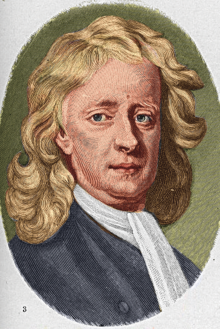This article's tone or style may not reflect the encyclopedic tone used on Wikipedia. (June 2024) |
This article possibly contains original research. (June 2024) |

English physicist and mathematician Isaac Newton produced works exploring chronology, and biblical interpretation (especially of the Apocalypse), and alchemy. Some of this could be considered occult. Newton's scientific work may have been of lesser personal importance to him, as he placed emphasis on rediscovering the wisdom of the ancients. Historical research on Newton's occult studies in relation to his science have also been used to challenge the disenchantment narrative within critical theory.[1]
In the Early Modern Period of Newton's lifetime, the educated embraced a world view different from that of later centuries. Distinctions between science, superstition, and pseudoscience were still being formulated, and a devoutly Christian biblical perspective permeated Western culture.
- ^ Josephson-Storm, Jason (2017). The Myth of Disenchantment: Magic, Modernity, and the Birth of the Human Sciences. University of Chicago Press. pp. 43 and Chapter 2, passim. ISBN 978-0-226-40336-6.